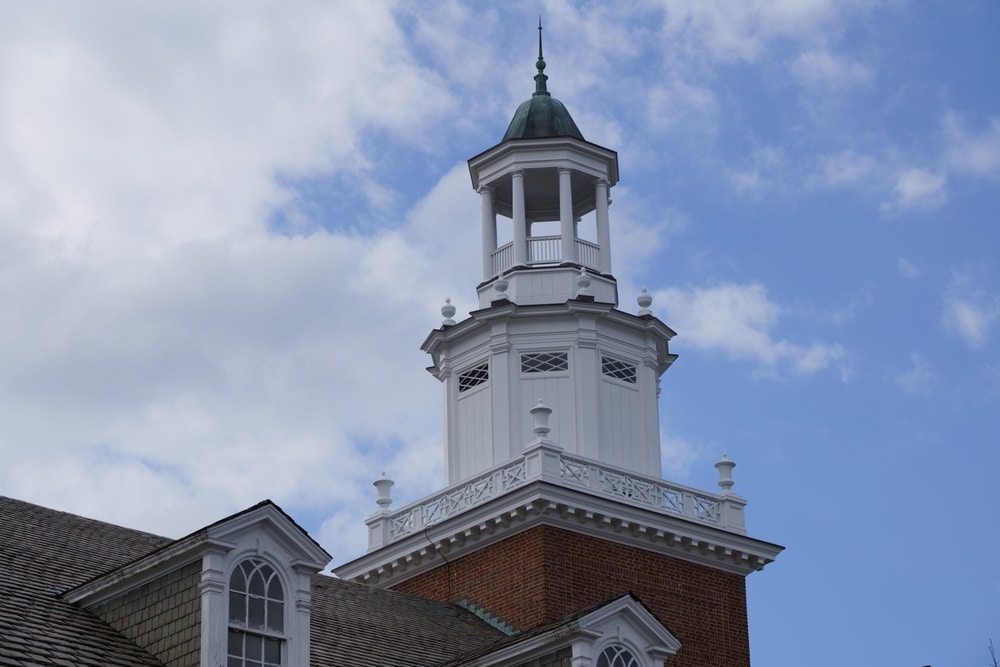Johns Hopkins vs Princeton: A Comprehensive Analysis
Choosing the right university is an important decision that can shape the course of your future. There are many factors to consider, such as acceptance rates, academic programs offered, faculty and staff features, campus life, housing options, research opportunities, and career development prospects. Two of the prestigious universities often compared to each other are Johns Hopkins University vs Princeton University, and this article will provide a comprehensive analysis of both institutions to help you make an informed decision about which one is the right fit for you.
Introduction: Understanding the Importance of Choosing the Right University
Attending a university is a significant investment of time, money, and effort. Therefore, choosing the right university is crucial for your academic success, personal growth, and career prospects. It is important to research and compare different universities based on various criteria to ensure that you select an institution that aligns with your goals, interests, and values.
One important factor to consider when choosing a university is the location. The location of the university can have a significant impact on your overall experience. For example, if you prefer a bustling city environment, you may want to consider universities located in urban areas. On the other hand, if you prefer a quieter, more rural setting, you may want to consider universities located in more remote areas. Additionally, the location of the university can also affect your access to internships, job opportunities, and networking events. Therefore, it is important to consider the location of the university when making your decision.
Overview of Johns Hopkins University
Located in Baltimore, Maryland, Johns Hopkins University is widely recognized for its strengths in medicine, public health, and the natural sciences. Founded in 1876 by John Hopkins, a successful businessman, and philanthropist, the university has grown to become one of the leading research universities in the world, with over 26,000 students enrolled across nine academic divisions.
In addition to its academic programs, Johns Hopkins University is also known for its world-renowned medical center, which includes the Johns Hopkins Hospital and the Bloomberg School of Public Health. The medical center is consistently ranked among the top hospitals in the United States and is a leader in research and patient care. The university also has a strong commitment to community engagement and social justice, with numerous programs and initiatives aimed at improving the lives of people in Baltimore and beyond.
Overview of Princeton University
Located in Princeton, New Jersey, Princeton University is a private Ivy League research university that was founded in 1746. The university is known for its strengths in the humanities, social sciences, and natural sciences, and has an undergraduate enrollment of around 5,400 students.
Princeton University has a long-standing reputation for academic excellence and is consistently ranked as one of the top universities in the world. The university has produced numerous Nobel laureates, Rhodes Scholars, and other distinguished alumni who have made significant contributions to their fields.
In addition to its academic programs, Princeton University is also known for its beautiful campus, which features Gothic-style architecture and extensive green spaces. The university is home to several museums and galleries, including the Princeton University Art Museum, which houses over 100,000 works of art from around the world.
Admissions Process at Johns Hopkins University
The admissions process at Johns Hopkins University is highly selective, with an acceptance rate of around 8%. Applicants must submit an application, transcripts, test scores, essays, and letters of recommendation to be considered for admission. The university also considers extracurricular activities, community service, and leadership experience when making admission decisions.
In addition to the standard application materials, Johns Hopkins University also offers an optional interview for applicants. This interview can be conducted in-person or virtually and provides an opportunity for the applicant to showcase their personality and interests beyond what is included in their application.
Furthermore, Johns Hopkins University has a need-blind admissions policy, meaning that an applicant’s ability to pay for tuition is not considered during the admissions process. The university also offers a generous financial aid program to help make education more accessible to students from diverse backgrounds.
Admissions Process at Princeton University
The admissions process at Princeton University is also highly selective, with an acceptance rate of around 6%. Applicants must submit an application, transcripts, test scores, essays, and letters of recommendation. The university also considers extracurricular activities, community service, and leadership experience when making admission decisions.
Additionally, Princeton University offers a need-blind admission policy, which means that a student’s financial need is not taken into consideration during the admission process. The university is committed to meeting the full demonstrated financial need of all admitted students through a combination of grants, scholarships, and work-study programs. This ensures that students from all economic backgrounds have the opportunity to attend Princeton and receive a world-class education.
Johns Hopkins vs Princeton: Acceptance Rates and Selectivity
Both Johns Hopkins University and Princeton University have very low acceptance rates, indicating their high level of selectivity. It is important to note that admissions decisions are based on a holistic evaluation of applicants, and acceptance rates should not be the sole criterion for evaluating an institution’s quality.
However, it is worth noting that selectivity does not necessarily equate to academic excellence. Some institutions with higher acceptance rates may still offer top-notch academic programs and resources. It is important for prospective students to research and evaluate an institution’s academic offerings and resources in addition to its acceptance rate.
Furthermore, low acceptance rates can also be attributed to a variety of factors, such as the number of applicants, the institution’s popularity, and the competitiveness of the applicant pool. It is important for applicants to understand that rejection from a highly selective institution does not define their worth or potential for success.
Academic Programs Offered at Johns Hopkins University
Johns Hopkins University offers a wide range of undergraduate, graduate, and professional programs across its nine academic divisions. The university is particularly well known for its programs in the natural sciences, engineering, and health sciences, including medicine, public health, nursing, and biomedical engineering.
In addition to its strong programs in the natural sciences, engineering, and health sciences, Johns Hopkins University also offers a variety of programs in the humanities and social sciences. These include majors in history, political science, economics, and English, among others. The university’s Krieger School of Arts and Sciences is particularly well-regarded for its programs in the humanities.
Furthermore, Johns Hopkins University is home to several research centers and institutes, including the Applied Physics Laboratory, the Space Telescope Science Institute, and the Center for Talented Youth. These centers provide opportunities for students to engage in cutting-edge research and gain hands-on experience in their fields of study.
Academic Programs Offered at Princeton University
Princeton University offers undergraduate and graduate programs in the humanities, social sciences, and natural sciences. The university is particularly well known for its programs in economics, political science, and mathematics.
In addition to these programs, Princeton University also offers a variety of interdisciplinary programs that allow students to explore multiple fields of study. These programs include the Program in Law and Public Affairs, the Program in Neuroscience, and the Program in Environmental Studies.
Furthermore, Princeton University has a strong commitment to undergraduate research, offering opportunities for students to work alongside faculty members on cutting-edge research projects. The university also has a number of research centers and institutes, including the Princeton Institute for International and Regional Studies and the Princeton Environmental Institute.
Faculty and Staff Features at Johns Hopkins University
Johns Hopkins University has a world-class faculty that includes several Nobel laureates and members of the National Academy of Sciences. The university also has a diverse and inclusive staff that is committed to supporting student success.
In addition to their impressive credentials, the faculty at Johns Hopkins University are known for their dedication to teaching and mentorship. They work closely with students to provide individualized attention and support, and many are involved in cutting-edge research that provides unique opportunities for students to get involved in hands-on learning experiences. The staff at Johns Hopkins University are also committed to creating a welcoming and inclusive environment for all students. They provide a wide range of support services, including academic advising, career counseling, and mental health resources, to help students succeed both academically and personally.
Faculty and Staff Features at Princeton University
Princeton University also has an excellent faculty that includes several Nobel laureates and members of the National Academy of Sciences. The university is also known for its commitment to undergraduate teaching and mentorship.
In addition to its renowned faculty, Princeton University also boasts a highly skilled and dedicated staff. From administrative assistants to facilities managers, the staff at Princeton work tirelessly to ensure that the university runs smoothly and efficiently.
Furthermore, Princeton University offers a variety of professional development opportunities for both faculty and staff. These opportunities include workshops, seminars, and training programs designed to enhance skills and promote career growth.
Johns Hopkins vs Princeton: Campus Life and Student Activities
Johns Hopkins University has a vibrant campus life with over 400 student organizations and a strong emphasis on community service and leadership development. The university also has several athletic facilities and teams that compete in Division III sports.
Additionally, Johns Hopkins University offers a variety of cultural and artistic opportunities for students. The Mattin Center for the Arts hosts a range of events, including concerts, theater performances, and art exhibitions. The university also has a student-run radio station and newspaper, providing opportunities for students interested in media and journalism.
Princeton University has a rich campus life with over 300 student organizations and a strong emphasis on intellectual curiosity and artistic expression. The university also has several athletic facilities and teams that compete in Division I sports.
Additionally, Princeton University offers a variety of cultural events and performances throughout the year, including concerts, theater productions, and art exhibitions. Students can also participate in community service projects and volunteer opportunities both on and off campus. The university’s location in the historic town of Princeton provides easy access to museums, restaurants, and other cultural attractions in the surrounding area.
Johns Hopkins vs Princeton: Housing Options and Accommodations
Both Johns Hopkins University and Princeton University offer various housing options for students, including residence halls, apartments, and theme houses. The universities also have comprehensive dining and housing plans that cater to students’ diverse needs and preferences.
At Johns Hopkins University, students can choose to live in traditional residence halls or in apartment-style housing. The university also offers themed housing options, such as the Women in Science and Engineering (WISE) community, which provides a supportive environment for female students pursuing STEM fields. Additionally, students can opt for off-campus housing, with resources available to help them find safe and affordable options.
Princeton University offers a variety of housing options as well, including traditional dormitories, suites, and apartments. The university also has a residential college system, where students live in a designated college community and participate in social and academic activities with their fellow residents. For students with specific needs, such as those with disabilities or medical conditions, Princeton offers accommodations to ensure they have a comfortable and accessible living environment.
Research Opportunities Available at Johns Hopkins University
Johns Hopkins University is known for its research excellence, with over $2.8 billion in research funding, and several research institutes and centers, including the Applied Physics Laboratory, the Bloomberg School of Public Health, and the Space Telescope Science Institute. The university also offers various undergraduate and graduate research programs that enable students to engage in cutting-edge research and development.
One of the unique research opportunities available at Johns Hopkins University is the Research Experience for Undergraduates (REU) program. This program provides undergraduate students with the opportunity to work on research projects in various fields, including engineering, physics, and computer science. The program is designed to give students hands-on experience in research and development, and to prepare them for graduate studies or careers in research. The REU program is highly competitive, with only a limited number of spots available each year, but it is a great opportunity for students who are interested in pursuing a career in research.
Research Opportunities Available at Princeton University
Princeton University also has a strong research culture, with over $300 million in research funding, and several research centers and institutes, including the Andlinger Center for Energy and the Environment, the Princeton Neuroscience Institute, and the Princeton Environmental Institute. The university also offers various undergraduate and graduate research programs that enable students to engage in interdisciplinary research and innovation.
One of the unique research opportunities available at Princeton University is the Princeton Research Day, an annual event that showcases the research and creative endeavors of undergraduate and graduate students, postdoctoral researchers, and other scholars across all disciplines. This event provides a platform for students to present their research to a wider audience, network with other researchers, and gain valuable experience in communicating their findings to the public.
Johns Hopkins vs Princeton: Career Development and Job Prospects
Johns Hopkins University has a robust career development office that offers various resources, programs, and events to help students explore their career paths, connect with potential employers, and develop their professional skills. The university’s graduates are highly sought after by employers in various industries, including healthcare, research, finance, and technology.
One of the unique features of career development at Johns Hopkins University is the opportunity for students to participate in internships and co-op programs. These programs provide students with hands-on experience in their field of study and allow them to build valuable connections with professionals in their industry. Many students have secured job offers from their internship or co-op employers before even graduating.
In addition to the career development office, Johns Hopkins University also has a strong alumni network that provides support and mentorship to recent graduates. Alumni often return to campus to speak at career events and offer advice to students. This network can be a valuable resource for graduates as they navigate their career paths and seek new opportunities.
Princeton University also has an excellent career development office that offers various services, including career coaching, job search assistance, and skills workshops. The university’s graduates are highly valued by employers in various fields, including consulting, education, law, and government.
In addition to the career development office, Princeton University also has a strong alumni network that provides valuable connections and networking opportunities for graduates. The university hosts various alumni events throughout the year, including career fairs and networking receptions, which allow graduates to connect with potential employers and other professionals in their field.
Furthermore, Princeton University offers a wide range of academic programs and majors, which prepares graduates for diverse career paths. Graduates have gone on to successful careers in fields such as finance, healthcare, technology, and the arts. The university’s rigorous academic curriculum and emphasis on critical thinking and problem-solving skills also make graduates well-equipped for graduate school and further academic pursuits.
Johns Hopkins vs Princeton: Cost of Attending Each Institution
The cost of attending Johns Hopkins University and Princeton University varies based on various factors, including tuition, fees, housing, and personal expenses. However, both universities are committed to making education accessible and affordable to all, and offer various scholarships, grants, and financial aid options to eligible students.
It is important to note that the cost of attending these universities may also vary depending on the program or major chosen by the student. For example, some majors may require additional fees or materials, while others may offer more scholarship opportunities. It is recommended that students research and compare the costs and financial aid options for their specific program of interest before making a decision on which institution to attend.
Johns Hopkins vs Princeton: Which Institution is the Better Fit for You?
Choosing between Johns Hopkins University and Princeton University is a complex decision that depends on your individual needs, goals, and interests. Both universities have their strengths and weaknesses, and it is important to conduct thorough research, visit the campuses, and talk to current students and alumni to gain a better understanding of each institution’s culture and community. Ultimately, the best fit for you will depend on a variety of factors, including academic programs, research opportunities, career prospects, campus life, and financial considerations.
One important factor to consider when choosing between these two universities is the location. Johns Hopkins University is located in Baltimore, Maryland, which is a large city with a diverse population and many cultural attractions. Princeton University, on the other hand, is located in a small town in New Jersey, which offers a more intimate and close-knit community. Depending on your preferences, one location may be more appealing than the other.
Another factor to consider is the size of the student body. Johns Hopkins University has a larger student population, which may offer more opportunities for socializing and networking. However, Princeton University’s smaller student body may provide a more personalized and supportive learning environment. It is important to consider your own personality and learning style when making this decision.
How AdmissionSight Can Help You With College Admissions
AdmissionSight is a college consulting firm that provides personalized assistance to students throughout the college admissions process. Here are some ways that AdmissionSight can help you:
Admissions strategy: AdmissionSight can help you develop a strategic plan for your college application process. Our professional consultants can assist with identifying schools that are a good fit for your academic, extracurricular, and personal goals and help you plan and prioritize your application strategy.
Application review: AdmissionSight can review your application and provide feedback on how to improve it. We can offer suggestions on making your application stand out and highlighting your strengths and unique qualities.
Essay coaching: AdmissionSight can help you craft compelling essays that showcase your personality, goals, and achievements. We can guide you through the essay writing process and provide feedback on your drafts to help you refine your writing.
Interview preparation: AdmissionSight can provide interview coaching to help you feel confident and prepared for college interviews. Our experts can offer tips on how to present yourself professionally and how to answer common interview questions.
Extracurricular planning: AdmissionSight can help you plan and develop your extracurricular activities to make them more impactful and meaningful. We can suggest activities that align with your interests and goals and provide guidance on demonstrating your leadership and initiative.
Overall, AdmissionSight can provide valuable guidance and support throughout the college admissions process to help you maximize your chances of getting accepted into the college of your choice.
With a high success rate of over 75%, we have built a strong network in the past decade. Book an initial consultation today, free of charge!












































